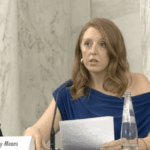Hot vax summer? Pfizer’s mood-killing, premature booster announcement
By Matt Field | July 13, 2021
 As COVID-19 case counts began to decline and the vaccination rate increased, state and local governments have been lifting mask requirements and other public health restrictions. Credit: Pixabay.
As COVID-19 case counts began to decline and the vaccination rate increased, state and local governments have been lifting mask requirements and other public health restrictions. Credit: Pixabay.
As winter turned to spring, many in the United States breathed a sigh of relief because the pandemic picture seemed to be getting better. People flooded social media with vaccination pics as case counts trended down and news outlets mused about just how great summer would be—reunions, restaurant dinners, and travel finally made safer. But with the remnants of Fourth of July barbecue still baked onto America’s patio grills, Pfizer and BioNTech, the makers of one of the most powerful COVID-19 vaccines, decided to bring a big, sopping wet blanket to the social reopening that news outlets have started to call “hot vax summer.”
Pfizer’s chief scientific officer Mikael Dolsten told Reuters that six months after getting the Pfizer shot, “there likely is the risk of reinfection as antibodies, as predicted, wane.” The company planned to ask the US government to authorize a third shot of its near-miraculous vaccine and even test a new vaccine specifically tailored to the new highly contagious delta variant of the coronavirus causing the pandemic.
White House officials worried the announcement would drive vaccine skepticism if people thought the shots were good only for six months. World Health Organization officials lashed out at Pfizer for recommending boosters when health care workers and others in much of the world couldn’t even get a first shot, much less a controversial third shot of the vaccine. And scientists questioned whether the boosters were even necessary.
With less than 50 percent of the United States fully vaccinated, and the low-hanging fruit of the country’s vaccine drive (e.g., everyone who posted a picture of their vaccine card on social media) mostly vaccinated, the Biden administration and state and local officials are struggling to boost coverage, including in areas where vaccine hesitancy can run high.
Despite lotteries and scholarship giveaways, and even as cases start to tick up in many states, vaccination trend lines are creeping down.
“You know what would really help?” Ashish K. Jha, dean of Brown School of Public Health, tweeted. “Ensuring the 25M who have 1 shot get their 2nd. And [e]nsuring the 100M eligible who have zero shots get their first. That would help keep everyone safe”
Other experts question whether boosters are even necessary. “At this point I see no evidence to support recommending them,” Emory University expert Carlos del Rio tweeted.
As part of its push for booster shots, Pfizer cited Israeli data showing that after six months, its vaccine was less effective at preventing both infection and symptomatic disease. On July 5, the government reported vaccine’s effectiveness at preventing infection and symptomatic disease had fallen to 64 percent, while in May, the government reported the Pfizer vaccine was 95 percent effective at preventing infection, hospitalization, and severe disease, according to Reuters. Some scientists questioned the Israeli data’s limitations, but the government there has already started giving Pfizer booster shots to patients with compromised immune systems.
Pfizer has suggested a reduction in antibodies to the coronavirus as a reason a booster shot is needed, but the immune system has more than one trick up its sleeve. In addition to antibodies that help the body identify pathogens, the body also produces memory B cells, for example, which exist in bone marrow and bodily organs and can produce new antibodies after an exposure. These cells can persist for years. “Antibody response is not the only measure of immune protection,” Leana S. Wen, a former health commissioner for Baltimore, told The New York Times.
If the US government changes course and recommends boosters, the move would likely put even more wind in Pfizer’s already billowing financial sails. The company reported a more than $1 billion increase in net income in the first three months of the year as compared to 2020 and has projected it would sell $26 billion of COVID-19 vaccination doses in 2021. John P. Moore, an immunologist at Weill Cornell Medicine, told The Washington Post he worried that Pfizer was making an opportunistic pitch. Boosters may be necessary, he said, “but to say we need it now and give the public the impression the vaccines are failing and something needs to be done as a matter of urgency. … The time isn’t now,” he said.
With booster shots representing a potential market of somewhere between $11 and $37 billion for Pfizer, according to a Bloomberg Intelligence analysis, and hints that the company’s discounted pandemic pricing may come to end (currently shots cost the US government $19.50, but the company has said a more typical price might be as high as $175), Pfizer clearly has a financial incentive to push boosters.
Pfizer didn’t answer a question about whether the profit motive was driving its push for boosters, instead telling the Bulletin in a statement that the company has “a sense of urgency in staying ahead of the virus.” It’s a sentiment, the statement said, that the US government also shared. For now, at least, the federal government is keeping its excitement over boosters in check. “Americans who have been fully vaccinated do not need a booster shot at this time,” the US Centers for Disease Control and Prevention and the Food and Drug Administration said in joint statement. So for now, in the United States at least, the hot vax summer goes on.
Together, we make the world safer.
The Bulletin elevates expert voices above the noise. But as an independent nonprofit organization, our operations depend on the support of readers like you. Help us continue to deliver quality journalism that holds leaders accountable. Your support of our work at any level is important. In return, we promise our coverage will be understandable, influential, vigilant, solution-oriented, and fair-minded. Together we can make a difference.
Keywords: COVID-19, Pfizer, booster shots, vaccines
Topics: Biosecurity, Disruptive Technologies















